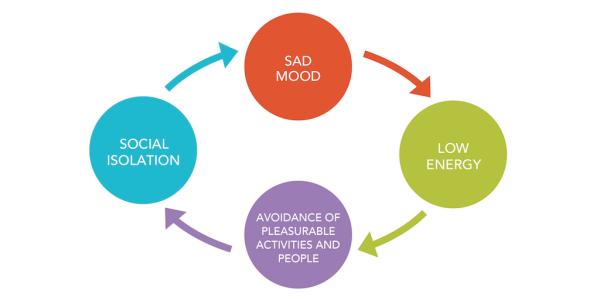How I Treat Depression
As a psychologist, depression it probably the condition I treat most regularly in my northcote practice. Most of my referrals mention depression, and is the primary concern for around 30% of my clients. This is typical for most psychologists. Depression continues to be one of the largest mental health challenges of our time. Here is a brief overview of how I think about treatment for depressed clients.
Going Deeper
Knowing that you are depressed is a good first step, but there is a lot more to discover as part of the therapuetic process. What does your depression feels like? When is it at its worst? What do you think about when you’re depressed? Have you felt like this at any other time in your life? Answering these questions will help us get to the potential causes of your depression, and to what your recovery will look like. This exploration will take time, and perhaps we will need to return to it occasionally if we think we are missing something.
What Do You Want From Life?
Personally I think everyone should spend more time thinking about what they want from life. For people with depression though it can be particularly important. Depressive episodes are sometimes triggered by feelings that life is unrewarding or at a dead end, and it is important to explore these feelings in therapy.
Often people make life decisions on what they think they should enjoy or value, rather than what they actually enjoy. This can lead to a life that feels superficial or unstimulating. In my own life, I spent a long time pursuing a career in finance because I liked the idea of it. I wanted to be in the center of things and have a fast paced and interesting job. It took me a long time to realise that I didn’t actually enjoy the work of being a banker. Talking to customers about their businesses was interesting, but I hated writing credit reports and when I had to tell customers we couldn’t help them. In my current career, I like both the idea of being a psychologist, and the actual work. Discovering this about myself had a major impact on my mood, and only came about after some serious self examination.
Behavioural Activation in Depression
Have you ever not wanted to go somewhere, but then when you finally went you ended up enjoying yourself? In psychology we call this a difference between anticipatory and consummatory pleasure, and it is a common occurence. Unfortunately when we’re depressed this difference is particularly pronounced. Depression caused us to enjoy things less, but the biggest decline is in how much we look forward to activities. As a result, we end up skipping social events or activities that we would potentially enjoy. This leads to our lives having less enjoyable moments, which in turn leads to further depression.

Breaking this cycle can be difficult, but is an important part of recovering from depression. In my work I help clients understand how this cycle works for them, and how to change it.
If you would like to book a free consultation call or appointment at my clinic in Northcote, please visit my appointments page.